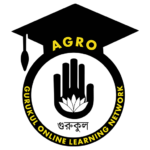Agriculture Education in the UK. Agriculture education in the United Kingdom has a rich history and a bright future. As a country with a large agricultural sector, the UK has long understood the importance of providing quality education in this field. As the world faces food security, climate change, and sustainability challenges, agriculture education is becoming increasingly important. This comprehensive guide delves into the various aspects of agriculture education in the UK, examining its historical development, current state, and future perspectives.
Table of Contents
Agriculture education in the UK

Historical Development of Agriculture Education in the UK
The roots of formal agriculture education in the UK trace back to the 19th century when the first agriculture colleges were established. These early institutions, such as the Royal Agricultural University founded in 1845, provided practical and scientific training to young people intending to work in agriculture.
During the 20th century, the UK government played a significant role in expanding agriculture education as part of its broader efforts to modernise the agriculture sector and improve food security. The passing of the Agriculture Act 1947, which provided grants for agriculture research and education, signified a crucial step towards enhancing the sector’s knowledge base.

Current State of Agriculture Education in the UK
Today, agriculture education in the UK spans a broad spectrum, from secondary schools to higher education institutions and vocational training providers. Let’s explore these avenues in detail.
Secondary School Education:
At the secondary level, agriculture is often incorporated into geography, biology, and environmental science curricula. Students gain knowledge about basic farming practices, the role of agriculture in the economy, and its environmental impact. Some schools, particularly in rural areas, offer more specialised agricultural studies or work with local farms to provide students with hands-on experience.
Further Education (FE) Colleges:
FE colleges offer a range of vocational qualifications in agriculture, from Level 1 (introductory) to Level 3 (equivalent to A-levels). These qualifications, such as BTEC Diplomas or NVQs, provide practical training in areas like crop management, livestock husbandry, and farm machinery operation. They are typically aimed at individuals planning to work directly in the farming industry.
Higher Education:
The UK is home to several renowned universities that offer undergraduate and postgraduate courses in agriculture and related fields. These programmes often blend scientific knowledge with practical skills, covering topics like crop science, animal science, agribusiness, agricultural engineering, and environmental sustainability. Research in these institutions often shapes the future of the UK’s agricultural practices.
Continuous Professional Development (CPD):
For individuals already working in the agriculture sector, various organisations and institutions offer CPD courses. These courses allow professionals to keep up-to-date with the latest developments in the field and gain new skills.
Online Education:
With the advent of digital technology, online agriculture education has grown significantly. This platform provides flexibility and accessibility, allowing individuals from all corners of the UK (and indeed, the world) to gain valuable knowledge and skills in agriculture.

Future Perspectives
The future of agriculture education in the UK is shaped by several emerging trends and challenges. For instance, the rising concerns about climate change and sustainability are influencing curriculum development, with a greater focus on sustainable farming practices, conservation, and the environmental impact of agriculture. Agtech, or agricultural technology, is another significant area of focus. Universities and colleges are increasingly offering courses on precision farming, drones in agriculture, big data in farming, and more.
Furthermore, Brexit has had profound implications for the UK agriculture sector, affecting everything from labour supply to trading relationships. This change necessitates a responsive agriculture education system that can equip students and existing professionals with the knowledge and skills to navigate this new landscape.
The Agriculture Skills and Knowledge Framework, developed by industry leaders and supported by the UK government, is a promising step towards ensuring the future readiness of UK agriculture education. The framework aims to improve access to training, diversify the range of available qualifications, and align education with industry needs.

Agriculture education in the UK, with its robust infrastructure and responsive curriculum, plays a critical role in empowering individuals to contribute effectively to the country’s vital agriculture sector. As we look to the future, this role will only grow in importance as we navigate the challenges of climate change, food security, and evolving technology. With a commitment to continuous improvement and adaptation, UK agriculture education can continue to lead the way in developing the next generation of agricultural leaders.
![]()
#Agro #Agriculture #AgroGurukul #AgricultureGurukul #GurukulOnlineLearningNetwork

1 thought on “Agriculture Education in the UK”